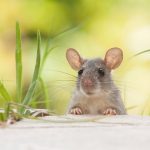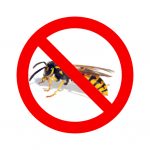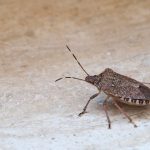Don’t invite pests into your home
A big part of maintaining a pest-free home is not encouraging an infestation in the first place. But simple things we do every day can make our homes more attractive to pests. By avoiding these pitfalls, you can help maintain a safer home for you and your family.
Feeding wildlife
Bird feeders attract more than feathered friends. Many animals love birdseed. Mice, rats, squirrels, and chipmunks will all invade outdoor feeders. Improperly stored bags of seed will encourage infestations inside your home. Store all seed outside in a tightly closed metal container. Mice can chew through plastic, and once rodents have learned where you store seed, they will continue to return until the source of food is removed. If you do need to store seed indoors, treat it as you would treat your own food: tightly sealed and in an area where rodents will not get to it.
Pet food
Leaving pet food outside or bowls of water can encourage other animals with a free meal. Large rodents like rats and raccoons will eat pet food, and once an animal has discovered an unattended source of food, it will continue to return to the same area. Do not leave food outdoors for long periods of time and never over night. Make sure you store pet food in tightly sealed, pest-proof sturdy containers. Rodents can easily chew through paper bags and light-duty plastic. Raccoons are capable of working latches and other simple closing mechanisms, so if you must store pet food outdoors or in a shed, make sure the containers are impossible for them to open.
While you are likely filling water bowls with fresh water when your puppers needs a drink, you should empty it when he’s finished. Otherwise, pests will identify it as a source of fresh water and continue to return to your living spaces.
Trash
Raccoons, rats, and other rodents can thrive from your rubbish. While it might be tempting to store garbage outside during the summer months, rodents can access your garbage and learn to identify it as a food source. Consider storing garbage indoors. If that is not an option, take steps to minimize food waste. Rinse food containers before placing them in the trash/recycling. Consider vermicomposting kitchen scraps or using a sink disposal unit to keep food out of the trash. If your city has community composting, follow their recommendations carefully to prevent vermin from invading you compost bins.
Deferred maintenance
Small projects around the house can make a big difference in deterring insects and other pests from establishing a presence in your home. Sealing cracks, repairing caulk around windows and doors and other small projects can keep insects out. Repairing leaky faucets and other drips will remove sources of water in kitchens. Repairing leaky roofs and flashing will keep your attic dry and clear of pests.
Keeping your lawn and garden free for debris, stagnant water and diseased plants will help deter pests by removing conditions that help them thrive.
Cleaning up
While keeping your home clean can seem like and endless task, making the effort will help deter pests from making a home in your house. Clutter provides dark places for insects to hide and breed. Those potato chip crumbs under the couch and a pan of leftovers on the stove are perfect food sources for a range of pests. Make the effort to clean up food before it has a chance to attract pests. Wipe up spills and sweep up crumbs daily. Don’t leave dirty dishes in the sink as this will encourage flies and gnats to breed. Also, consider storing fruit in the refrigerator or sealed containers to discourage fruit flies.
Your house does not need to become a haven for pests. By controlling food and water sources and keeping your home and lawn free from the clutter, you can remove the conditions that encourage them and create an environment that is better for you and your family.







Recent Comments